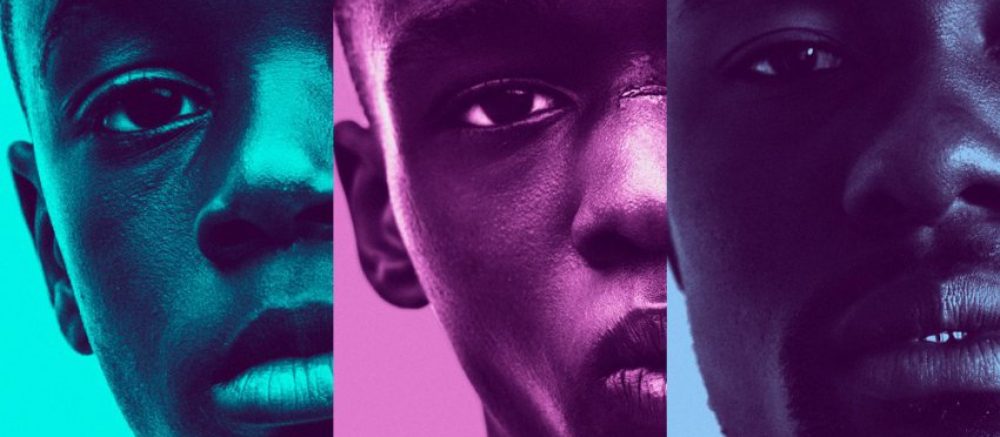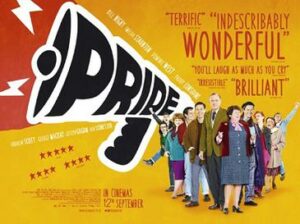For pride month this year, I am reviewing Matthew Warchu’s Pride. The film centres around a group of gay men (and a lesbian) and their struggle to raise money for a small Welsh village and the miners on strike there, whilst dealing with the rampant homophobia and the threat of the AIDS crisis looming overhead.
Considering the source material director Matthew Warchus manages to create a vibrant narrative, that balances the heavy subject matter with what I would call a very British approach to comedy. The blunt delivery to some lines, such as “Dai, your gays have arrived” or “We’re all off to have a big lez off” are delivered in such a way that you cannot help but laugh at them. This then paired with the juxtaposition of the group L.G.S.M (Lesbians and Gays Support the Miners) against the stone-faced Welsh miners which is repeatedly played up for laughs. What is important is the acceptance we see as these miners ask their new guests how to dance, or about the intricacies of what it means to be a lesbian.
What the film also excels at is how it deals with the representation of both parties, those in the LGBTQ+ community and the Welsh miners. Beforehand, many queer films seemed to primarily focus on the struggles of the LGBTQ+ community, take for example Brokeback Mountain or Philadelphia. whereas Pride seems to put a much more celebratory focus onto their lifestyles instead. We see drag artists, gay clubs, gay bars, places where they hang out. We aren’t exposed to a regurgitated representation of queer people’s lives being in constant pain, we see them laughing, smiling, crying, angry, passionate. They are finally seen as individual characters and not repeated stereotypes, which from my perspective is of huge importance regarding the representation of queer identities on screen.
When looking at the Welsh miners, the film quickly does away with them all being close-minded homophobes and chooses to give them a much more developed view on this lifestyle. That’s not to say that there aren’t still homophobic characters within the miner’s community, but much like the film’s representation of queer people, it is refreshing not having to spend a two-hour run time trying to teach a village of people that gay people are normal. We see individuals of this village come to terms with themselves, which adds to the refreshing take on this type of narrative.
On a whole Pride is a refreshing take on the representation of queer identities, set against the backdrop of major social issues which British cinema excels at. We are shown a new or at least a unique take on this type of subject matter. The film leaves the viewer with a message that is reflected in its title. Take pride in who you are and embrace that to the fullest.



